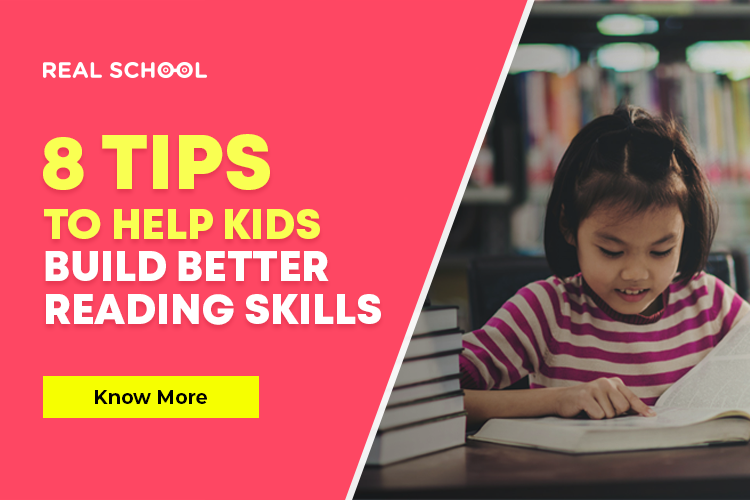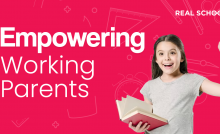Unlocking Communication Potential: 8 Tips for Students to Build Stronger Reading Skills


Reading is an essential skill that plays a vital role in shaping a child’s academic and personal development. Not only does it help with language acquisition and cognitive development, but it also lays the foundation for effective communication skills. As a parent or teacher, you play a crucial role in fostering a love of reading and helping students build better reading skills.
In this article, we’ll explore eight actionable tips to help your child or students enhance their reading skills and understand the importance of reading skills in communication. Whether you’re looking to support struggling readers or seeking ways to challenge advanced readers, these tips will help you create a supportive learning environment that promotes reading skills for kids. So, let’s dive in and discover how to unlock the power of reading!
Also Read : English Story Telling for Kids: How a Kid Can Win a Storytelling Competition in English?
8 Tips to Help Students Build Better Reading Skills
Strong reading skills are crucial for academic success and effective communication, making it essential to prioritise reading skills for kids. However, building better reading skills can be a challenging task for students, especially those who struggle with reading comprehension or fluency. To support your child or students’ reading development, here are eight actionable tips to help build better reading skills:
- Encourage daily reading habits to improve reading fluency and build vocabulary.
- Provide a variety of reading materials to keep reading engaging and exciting.
- Use reading comprehension strategies like predicting, summarising, and visualizing to enhance understanding.
- Model good reading habits by reading aloud and demonstrating active reading behaviours.
- Encourage discussions about reading to help students connect reading skills to communication skills.
- Offer targeted reading support, such as one-on-one reading intervention or small-group instruction.
- Use technology to enhance reading skills, like audiobooks, interactive reading games, or educational apps.
- Celebrate progress and achievement to boost students’ confidence and motivation.
By implementing these tips and prioritizing reading skills’ importance, you can help your child or students build better reading skills and develop a lifelong love of reading.
Reading Skills in Communication Importance
Reading skills play a crucial role in communication, as they enable individuals to understand written messages, interpret information, and convey their ideas effectively. In today’s information-driven world, strong reading skills are essential for success in academics, the workplace, and personal life.
Effective communication involves not only verbal but also written communication, making reading skills an essential component of effective communication. Individuals with strong reading skills can express themselves more coherently, understand others’ perspectives, and engage in meaningful conversations. Additionally, reading comprehension is necessary for understanding and interpreting complex documents, such as contracts, research papers, and legal documents.
Moreover, reading skills for kids have a significant impact on their academic success, as many academic subjects require reading comprehension and critical thinking skills. By developing reading skills at an early age, children can improve their academic performance and build a strong foundation for lifelong learning.
In conclusion, reading skills in communication are essential for success in various aspects of life, including academics, the workplace, and personal relationships. By prioritizing the development of reading skills, individuals can enhance their communication abilities, expand their knowledge, and achieve their goals.
Also Read: IQ Questions for Kids: How to Increase Your Kids IQ & Child Intelligence?
Reading Skills for Kids
Reading skills for kids are critical for their academic success and lifelong learning. Reading is a fundamental skill that helps children develop language and cognitive abilities, including vocabulary, grammar, comprehension, and critical thinking. Here are some ways to support the development of reading skills for kids:
- Read aloud to children from an early age to promote language development and a love of books.
- Provide a variety of reading materials, including age-appropriate books, comics, and magazines, to keep reading engaging and exciting.
- Encourage children to read independently and set aside time for daily reading habits.
- Provide support for struggling readers, such as one-on-one reading intervention or specialized reading programs.
- Use reading comprehension strategies like predicting, summarizing, and visualizing to enhance understanding.
- Celebrate children’s progress and achievements to boost their confidence and motivation.
- Foster a love of reading by making reading a fun and enjoyable experience.
By prioritizing reading skills for kids, parents and educators can help children develop strong reading skills, enhance their academic performance, and build a foundation for lifelong learning.
Conclusion
Developing strong reading skills is essential for success in various aspects of life, including academics, the workplace, and personal relationships. Reading skills enable individuals to understand written messages, interpret information, and convey their ideas effectively.
Moreover, reading skills for kids are critical for their academic success and lifelong learning. By prioritizing the development of reading skills and implementing strategies such as daily reading habits, providing a variety of reading materials, and using reading comprehension strategies, parents and educators can help children enhance their reading skills and build a strong foundation for lifelong learning.
Additionally, fostering a love of reading and celebrating children’s progress and achievements can boost their confidence and motivation. Ultimately, by developing strong reading skills, individuals can expand their knowledge, enhance their communication abilities, and achieve their goals.
Recent Posts
What are the Advantages of Online Teaching at The Real School?
In the article -"What are the Advantages of Online Teaching at The Real School?" we…
What is the Full Form of School?: Unveiling the Acronym
The term "school" carries profound significance in the realm of education, representing more than just…
What is Math Full Form?: Cracking the Code
Mathematics, often referred to as "Math," is a subject that elicits various reactions from students…
What is Full Form of Homework?: Decoding Academics
Homework, an integral part of the academic journey, often raises questions about its purpose and…
What is Full Form of Teacher?: Demystifying Education
In the intricate tapestry of education, teachers stand as the pillars shaping the intellectual and…
What is Real Education?: Discovering Its Essence and Impact
The concept of real education is evolving, transcending traditional views that equate it solely with…


